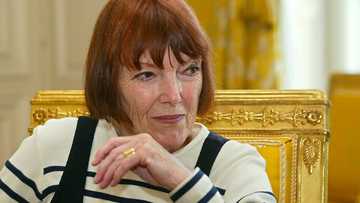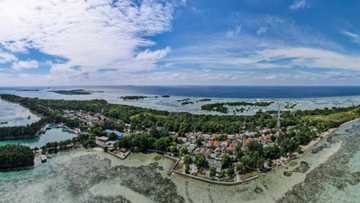15 famous African goddesses and gods: names and inspiring history
Africans always believed in the existence of the supernatural. They believed in a supreme natural being who created everything on earth. Although this supreme creator is always referred to as Him, it is beyond gender, as there are many African goddesses and gods.
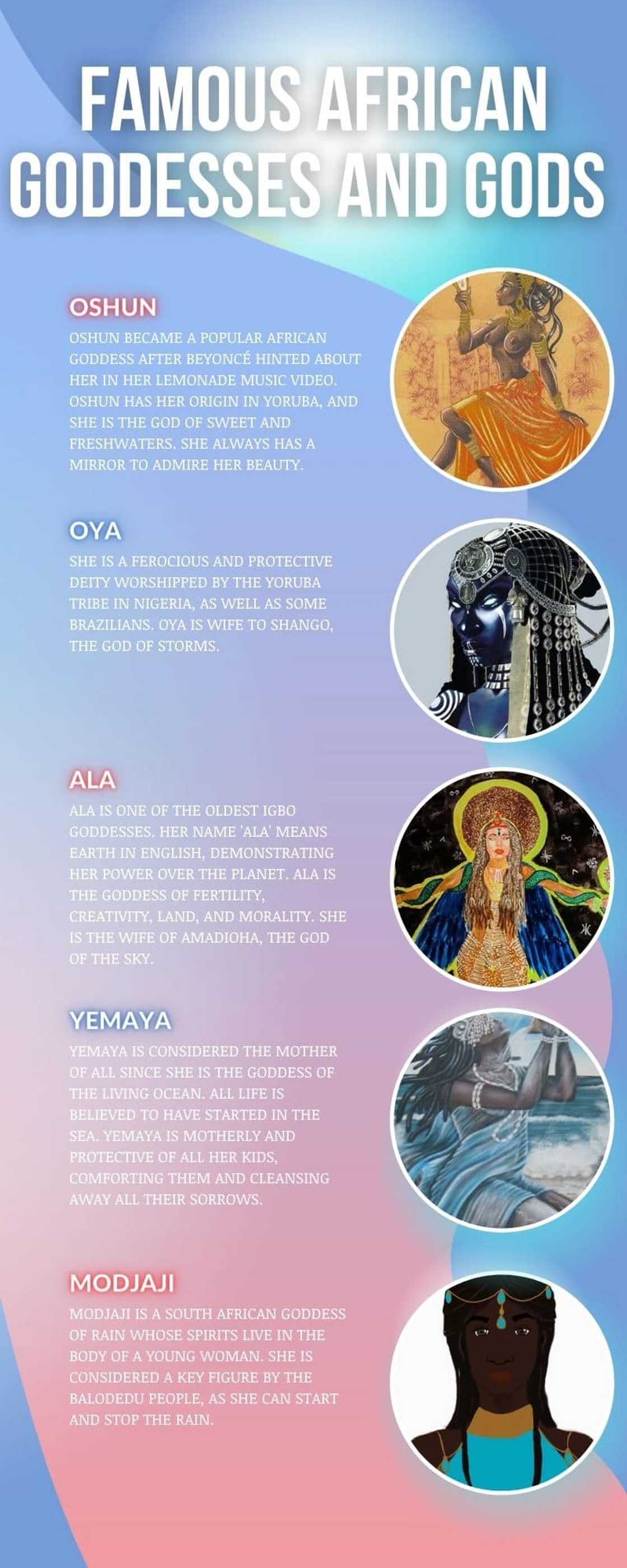
Source: UGC
Most African cultures believe that God used to live amongst them in the past before He left for His Kingdom in Heaven after several human transgressions. In His place, He appointed lesser African gods and goddesses to perform certain functions. As such, Africans have the god of water, rains, winds, earth, and fire, among others, to whom they can pray directly, and they will intercede on God's behalf.
15 famous African goddesses and gods
Ever looked at the African god names and goddesses' pictures? These beings are considered powerful in different areas and most cases. Their images reflect what they are associated with. Below are some of the famous African mythology gods and goddesses with pictures and their meanings in their respective communities.
1. Oshun
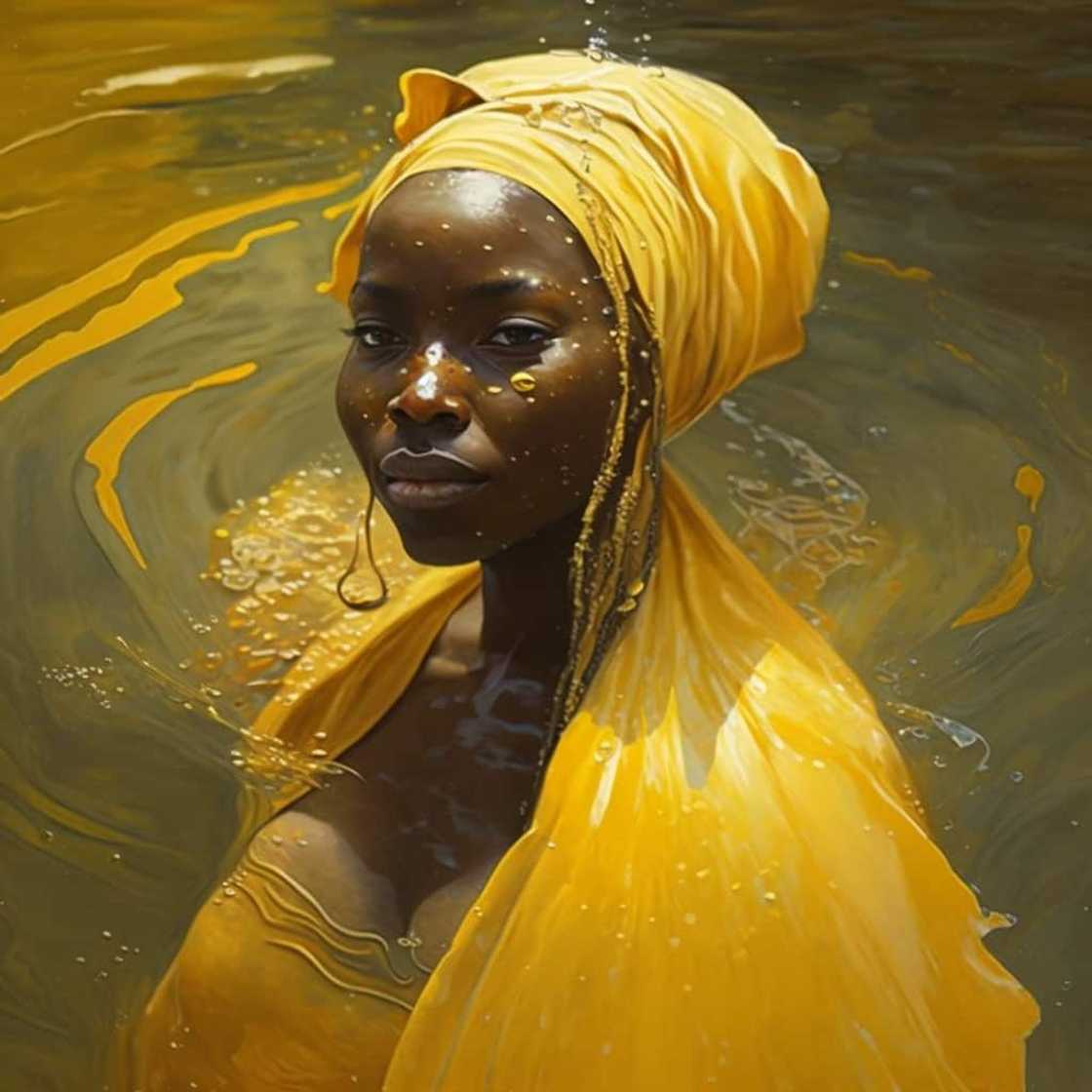
Source: Facebook
Oshun became a popular black goddess after Beyoncé hinted about her in her Lemonade music video. Oshun has her origin in Yoruba, and she is the god of sweet and freshwaters. She always has a mirror to admire her beauty.
Who is the African healing goddess? Oshun is revered by many for her abilities to heal the sick, foster prosperity, and bring fertility. The image of this goddess is represented by a stunning, charming, and coquettish young lady. Oshun means sweetness, joy, beauty, and good cheer.
2. Oya
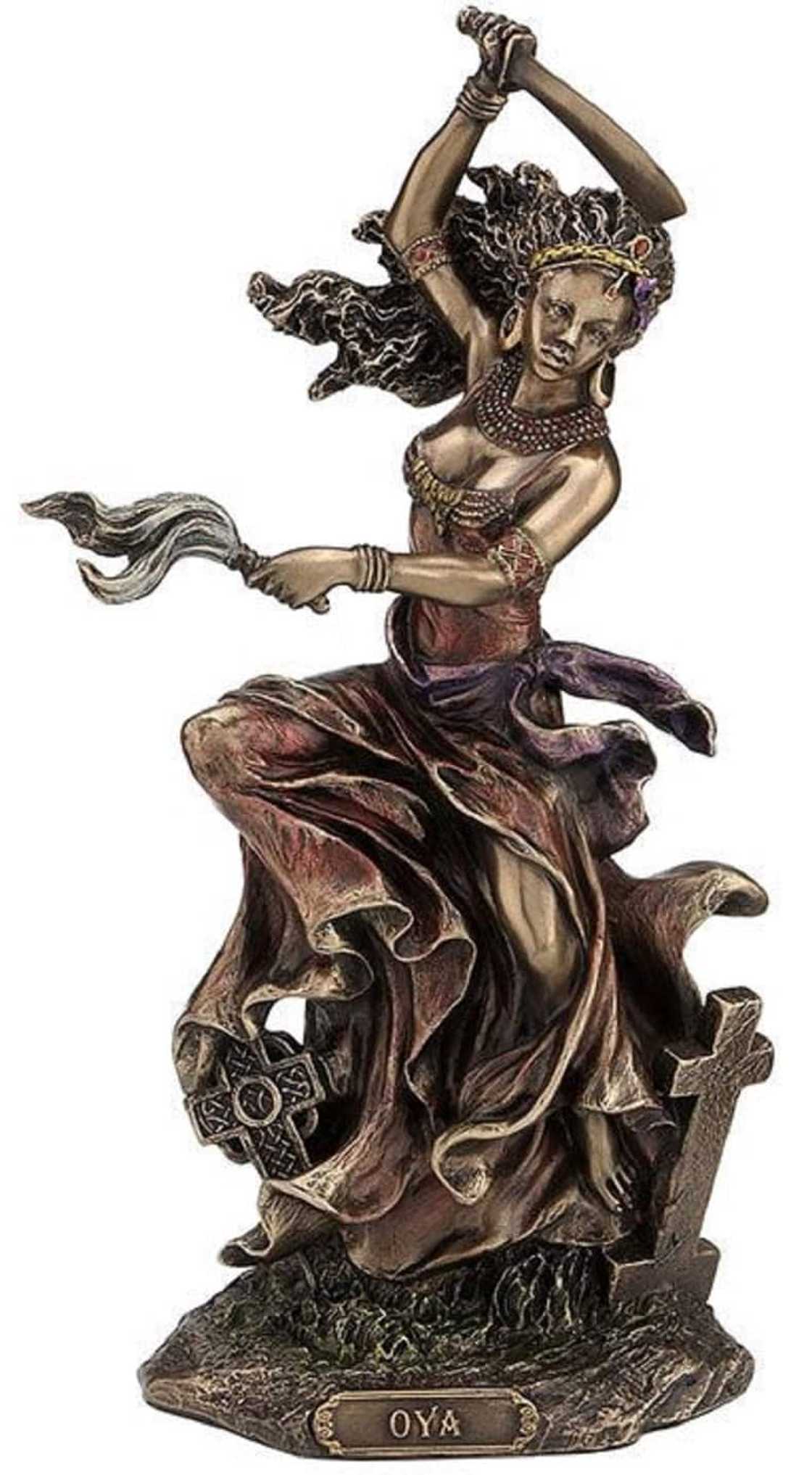
Source: UGC
Oya is a ferocious and protective deity worshipped by the Yoruba tribe in Nigeria and some Brazilians. Oya is the wife of Shango, the god of storms. She is the goddess of wind, thunderbolts, and fire; she can transform gentle breezes into raging hurricanes or cyclones. She is believed to accompany her husband during his thunderstorms to destroy buildings, blow things up, and rip off trees.
Due to her prowess, Oya brings down dead wood to give room for new. Additionally, she is the guardian of the gates of death, as she helps the dead in their transition from life.
3. Ala
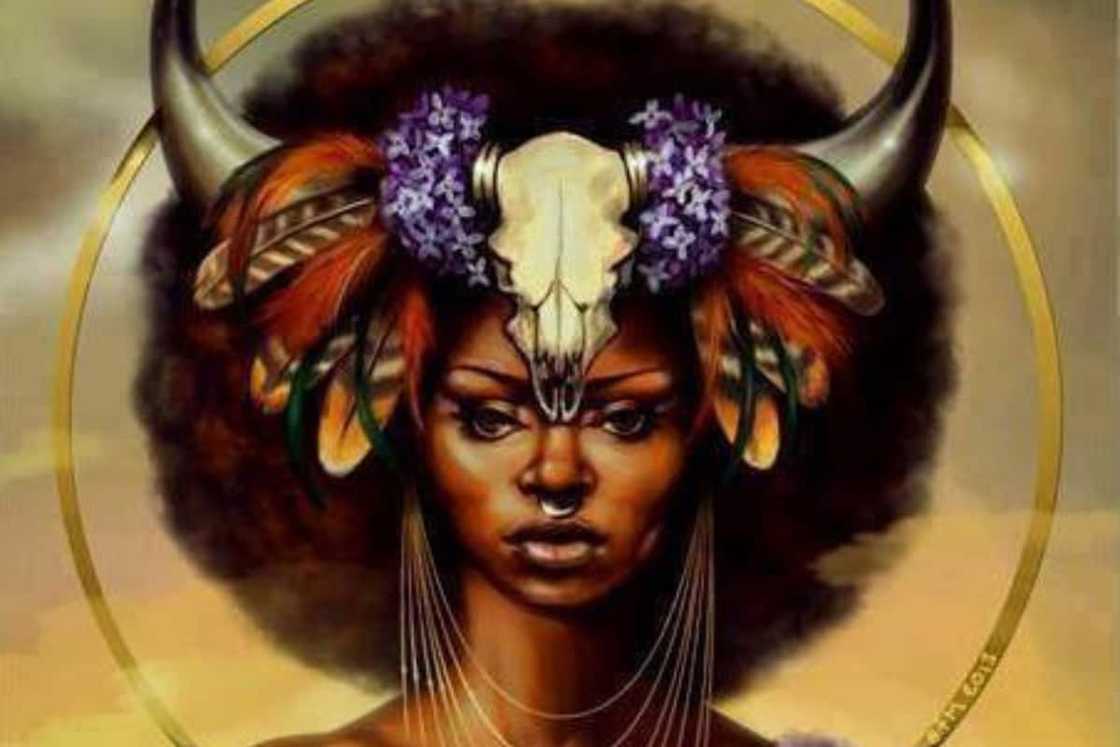
Source: UGC
Ala is one of the oldest Igbo goddesses. Her name 'Ala' means earth in English, demonstrating her power over the planet. Ala is the goddess of fertility, creativity, land, and morality.
She is the wife of Amadioha, the god of the sky. This goddess is honoured and celebrated during the yearly yam festival. When angered, Ala will convince her husband to deny rain to the people, who can also cause other natural disasters.
4. Yemaya
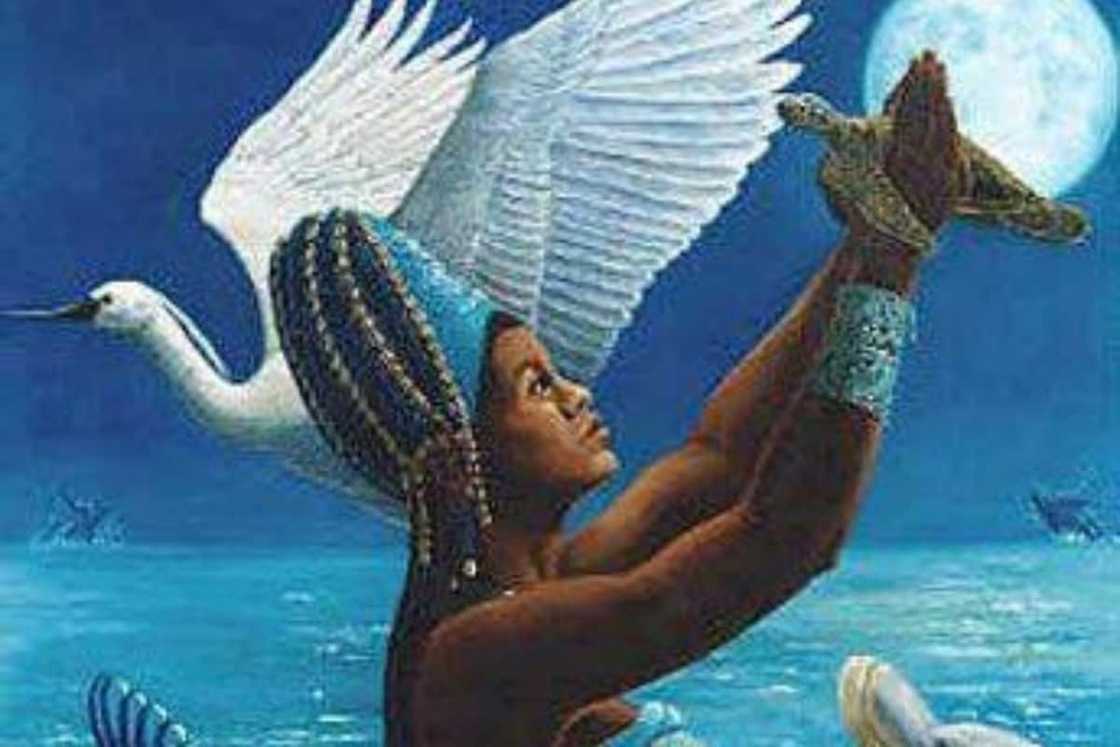
Source: Facebook
Yemaya is considered the mother of all since she is the goddess of the living ocean. All life is believed to have started in the sea. Yemaya is motherly and protective of all her kids, comforting them and cleansing away all their sorrows.
It is thought she can cure infertility in women, and the cowrie shells symbolize her wealth. Yemaya is not easily angered, but when she does, she is destructive and intense, just like the sea during a storm.
5. Modjadji
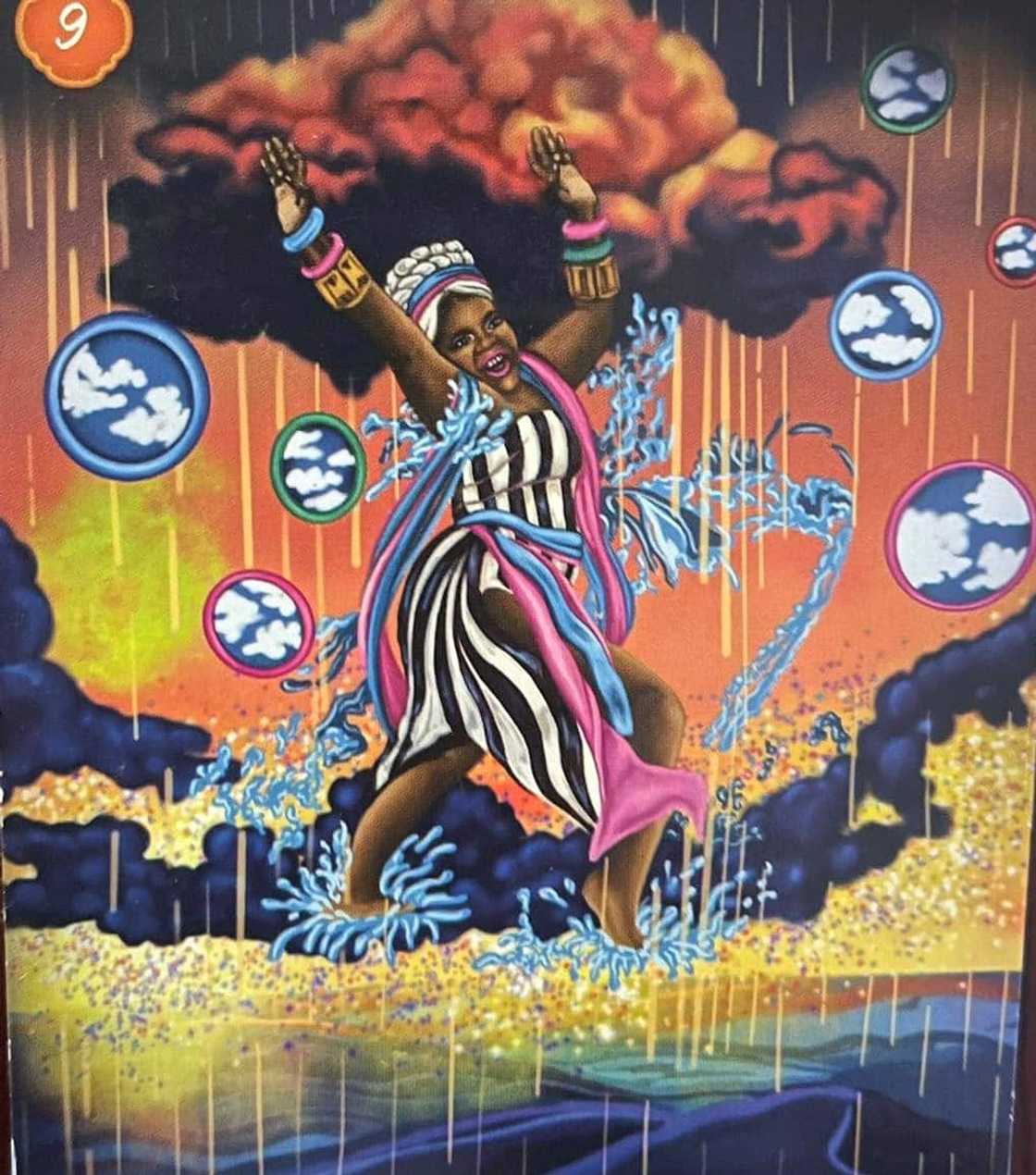
Source: Facebook
Modjadji is a South African goddess of rain whose spirits live in the body of a young woman. She is considered a key figure by the Balodedu people, as she can start and stop the rain. The rain queen has been around for the longest time, and it was only in the 16th century that her spirit decided to dwell in a woman.
6. Nana Buluku
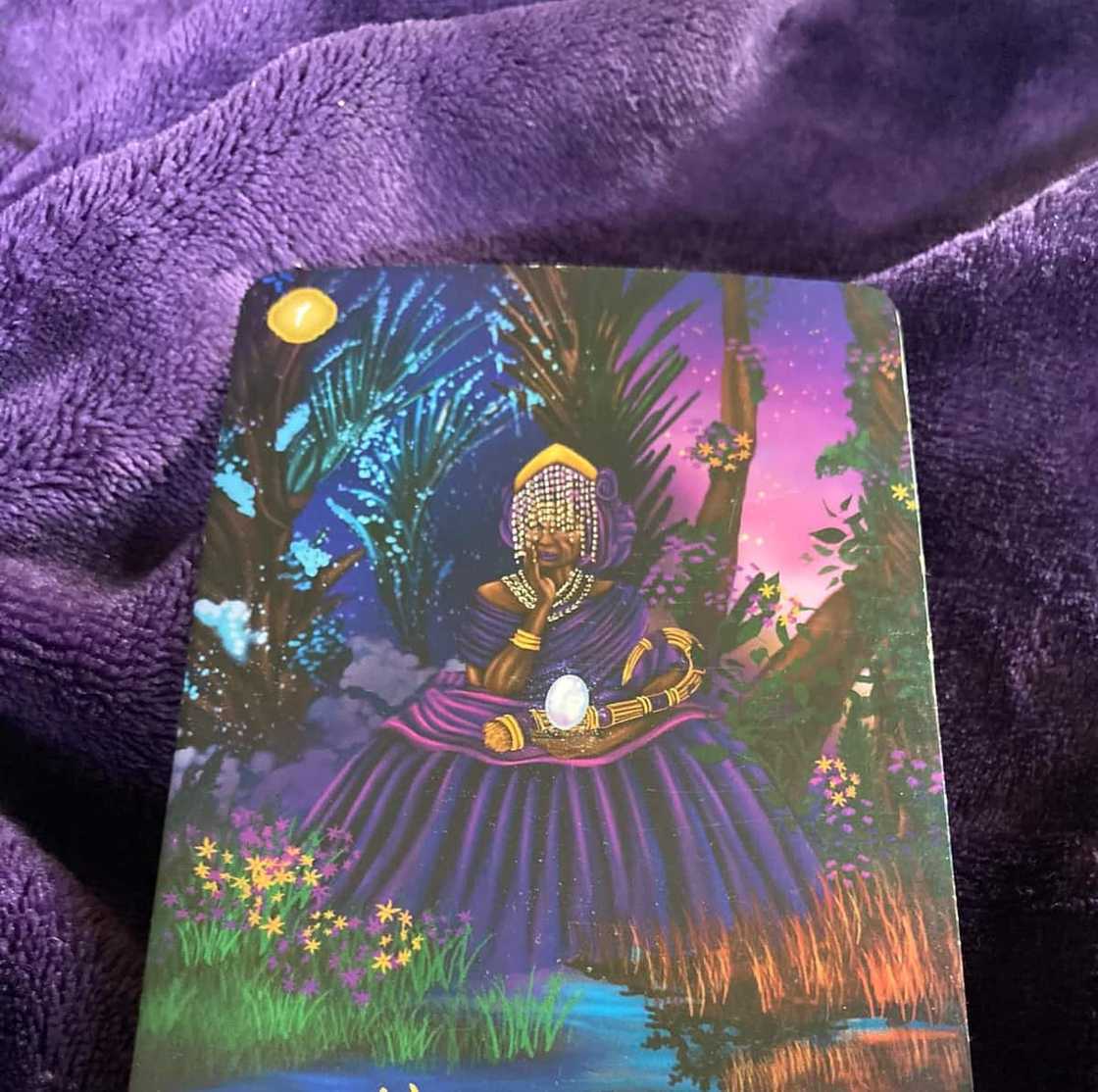
Source: UGC
Nana Buluku is a prominent deity famous in most West African nations. She also has different names in various tribes. Nana Buluku is worshipped as the mother goddess. Her image is that of an older woman who is thought to be the world's creator.
7. Abena
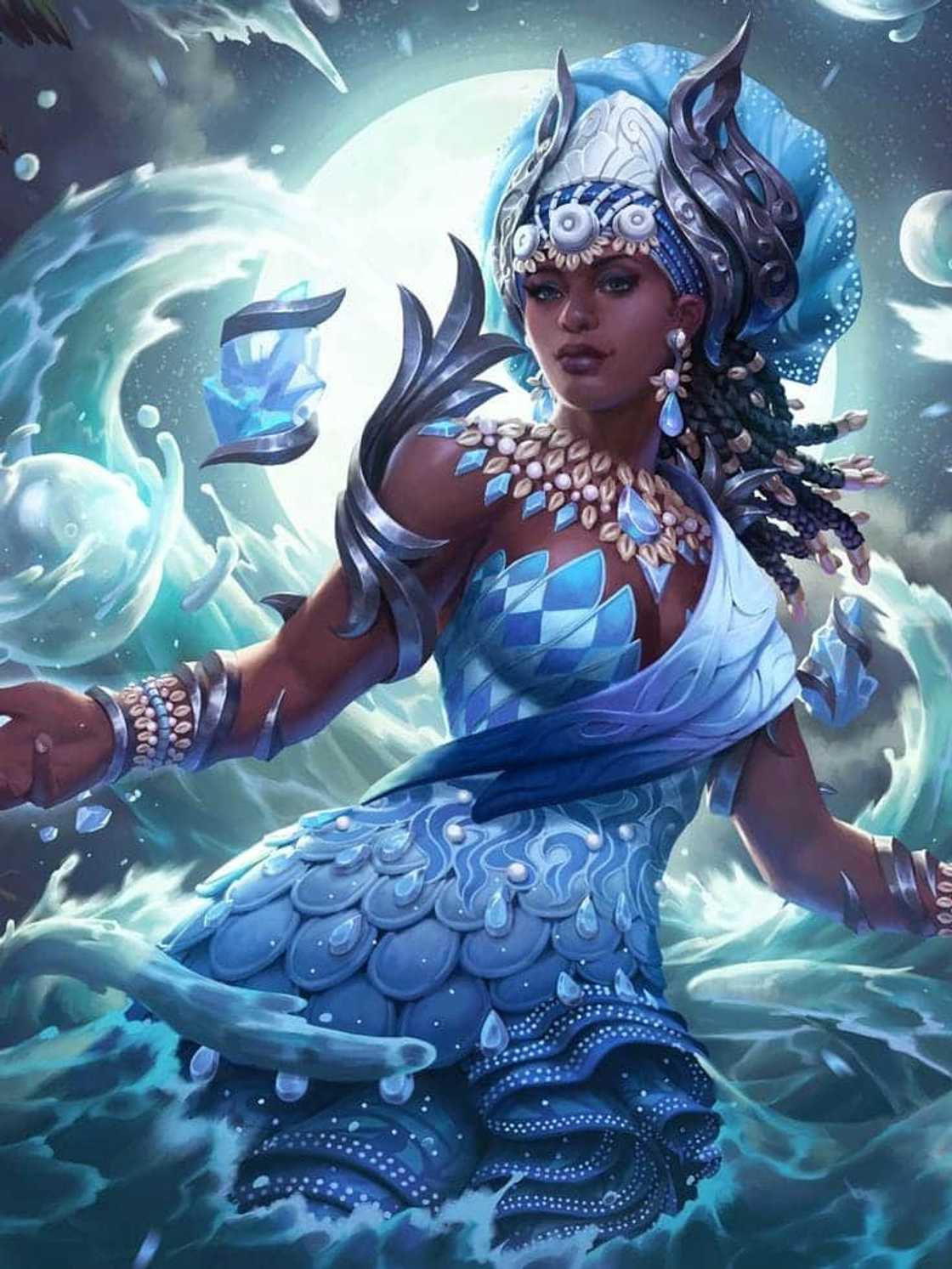
Source: Facebook
Known as the river goddess, Abena shields children and looks after them as adults as she perceives her believers as her children. Her name is associated with gold, brass, and other wealth symbols.
8. Odudua
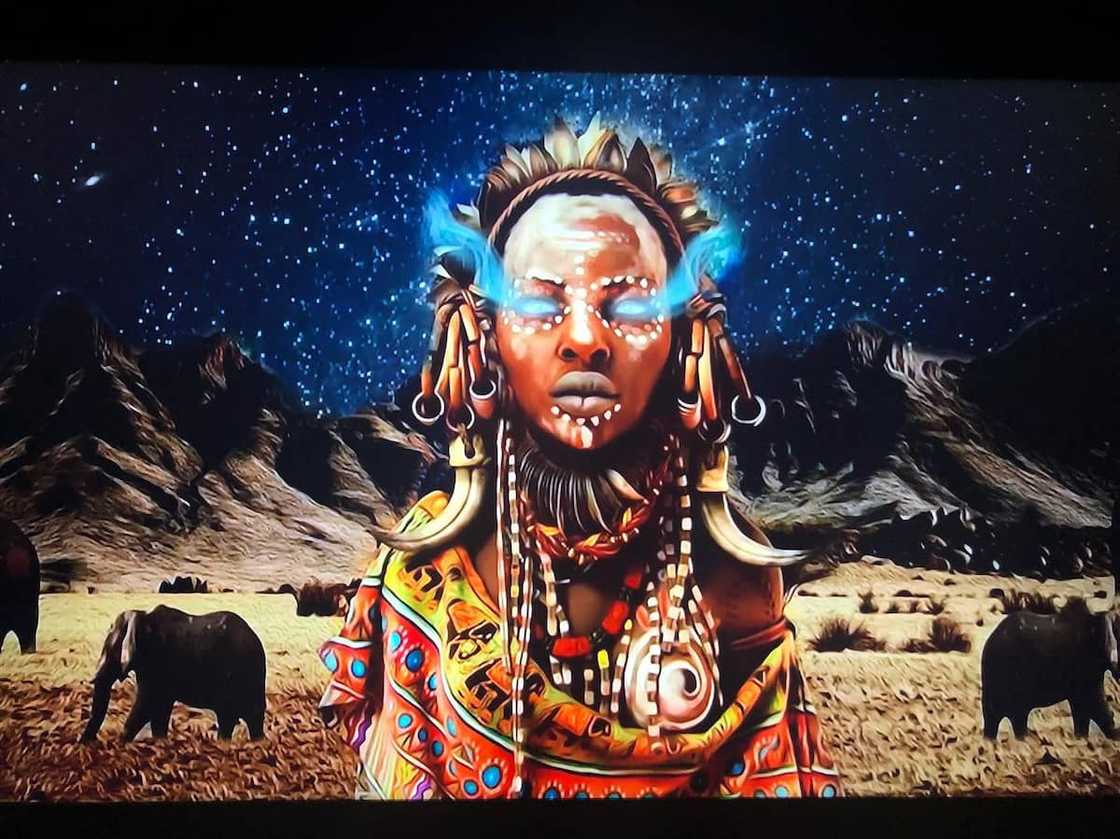
Source: Facebook
Odudua is among the African goddess names and meanings venerated by the North-West African community in Benin, Yoruba, and Dahomey. Her name Oduda means "the black one," and her appearance is that of a serpent. Oduda is the deity behind sacred prostitution practised in the Caribbean Islands.
9. Inkosazana
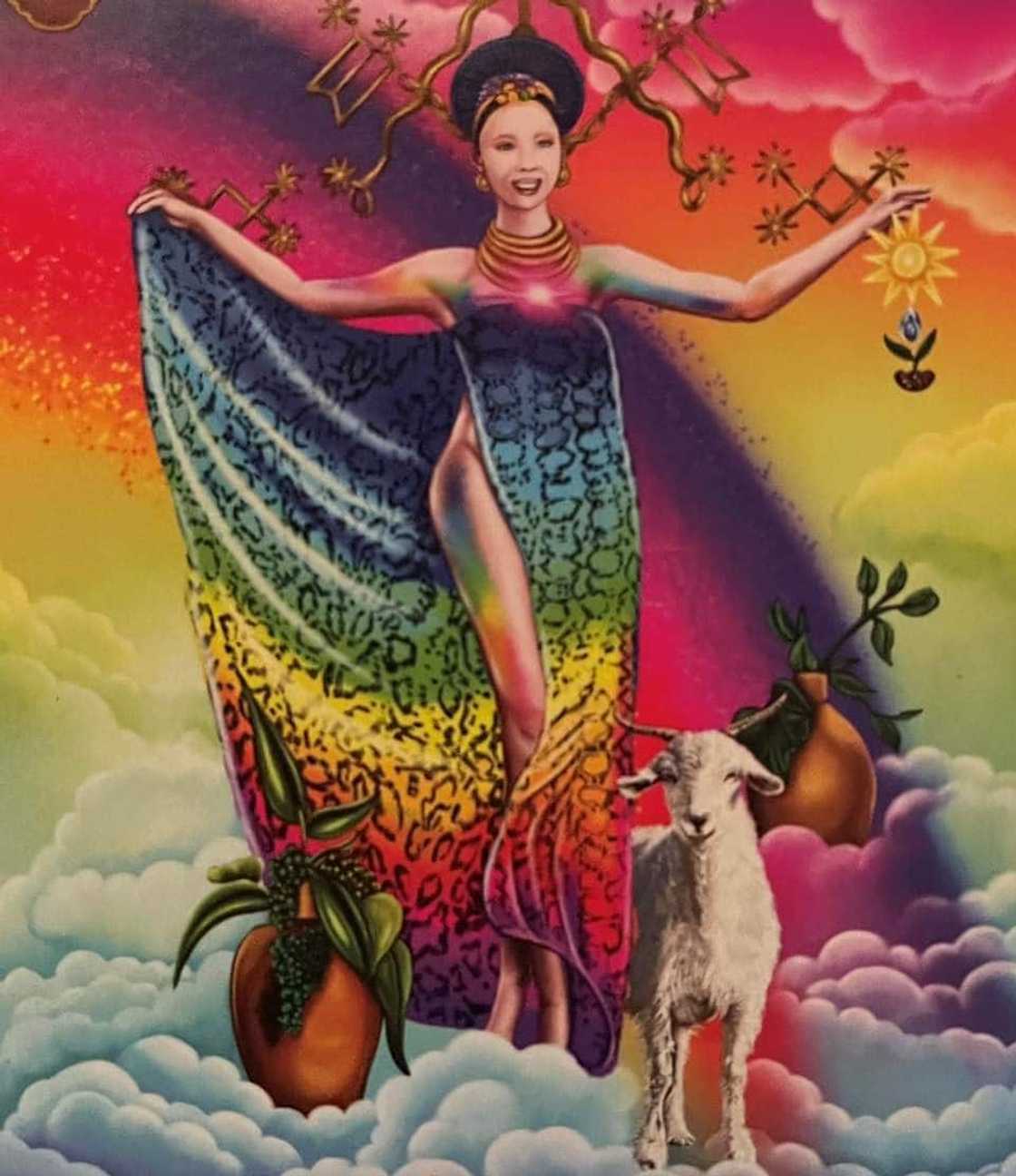
Source: Facebook
Inkosazan, which means "lady heaven," is a prominent and adored goddess of the Zulu community in South Africa. She is thought to be responsible for corn, one of the vital dietary supplements in the Zulu tribe.
10. Mbaba Mwana Waresa
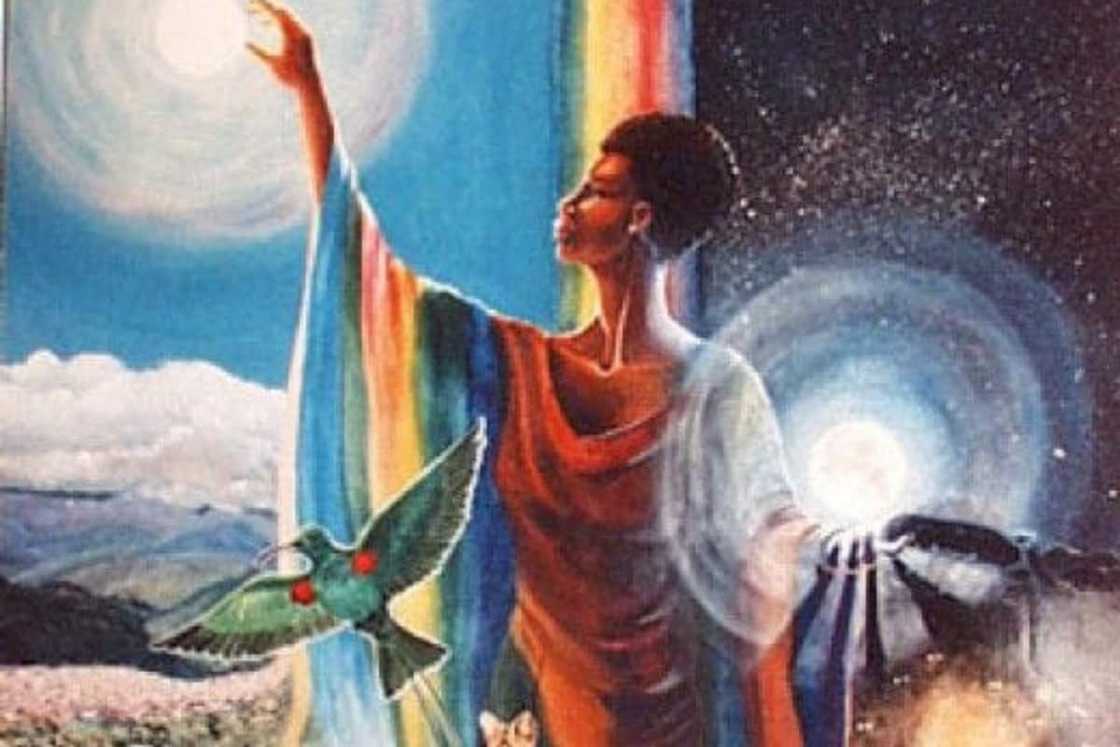
Source: UGC
Mbaba Mwana Waresa is a goddess in the mythology of the Zulu people of Southern Africa. She is the goddess of rain, agriculture, and the harvest and is also known as the "Queen of the Rainbow." Mbaba Mwana Waresa is believed to be a benevolent goddess who brings fertility to the land and ensures bountiful harvests for her people.
11. Kibuka
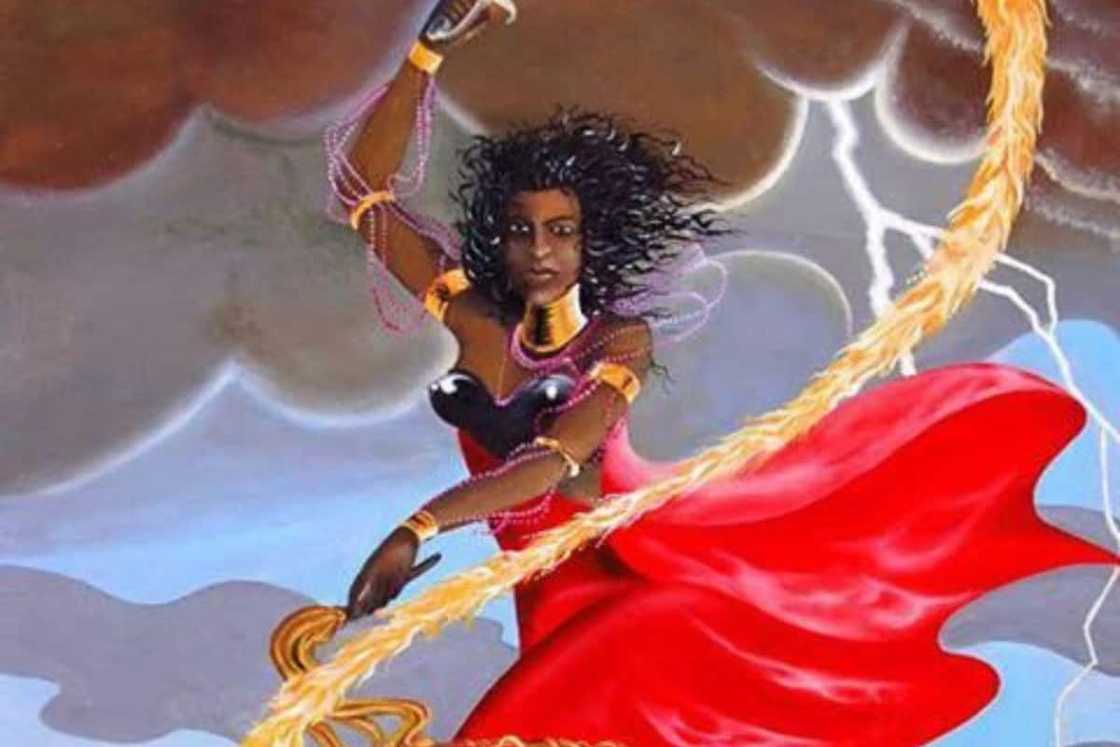
Source: UGC
Kibuka is the god of war in the Buganda Empire kingdom. It is believed that Kibuka has been with Buganda since the 9th century, even before the arrival of the Europeans in the country. After The Bugandan military encountered many defeats, its king met with the creator, Mukasa, to seek help to defeat his enemies.
It is here that Mukasa gave them his younger brother Kibuka to be their god of war. Before embarking on any battle, the army would sing, dance, and offer sacrifices to Kibuka. He would then go ahead of the warriors to clear their paths and ensure their victory.
12. Adroa
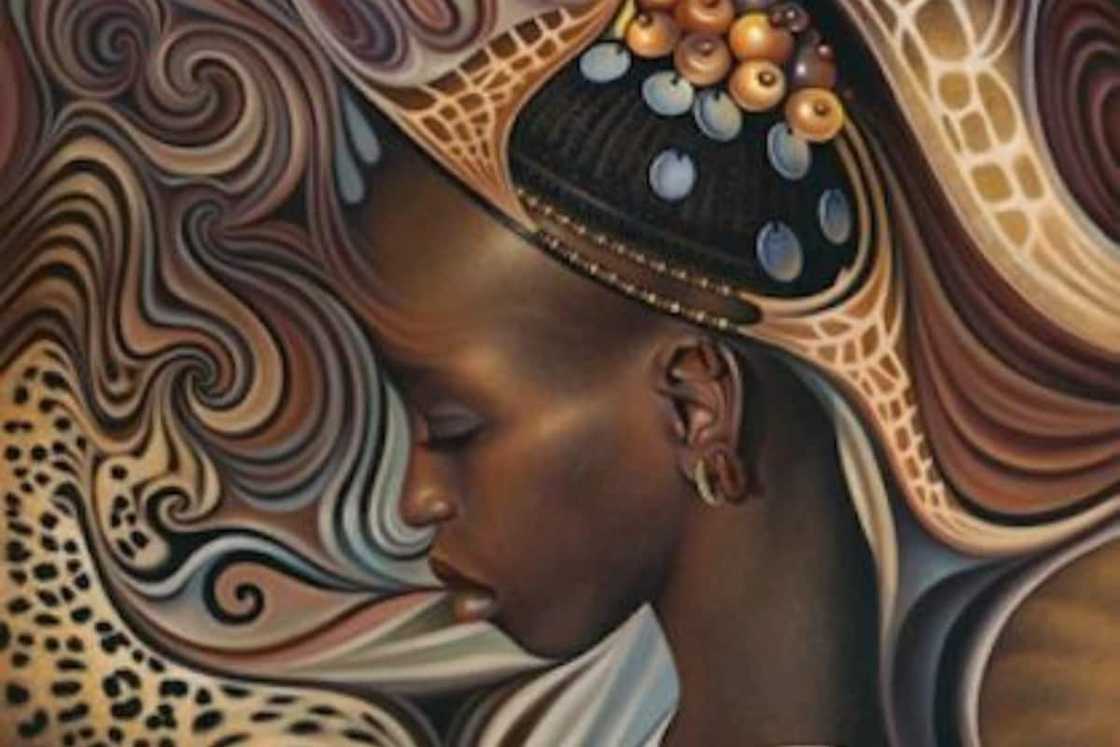
Source: UGC
Adroa is a fascinating African god of death for the Lugbara community in Uganda and Congo. He has two characteristics good and evil. Due to his duality, Adroa's body is divided into two.
One of the parts is short and black, symbolizing evil, while the other is tall and white, signifying goodness. Adroa will manifest himself to people in any form that fits the situation at hand. It is also believed that this god appears to individuals before they die.
13. Aja
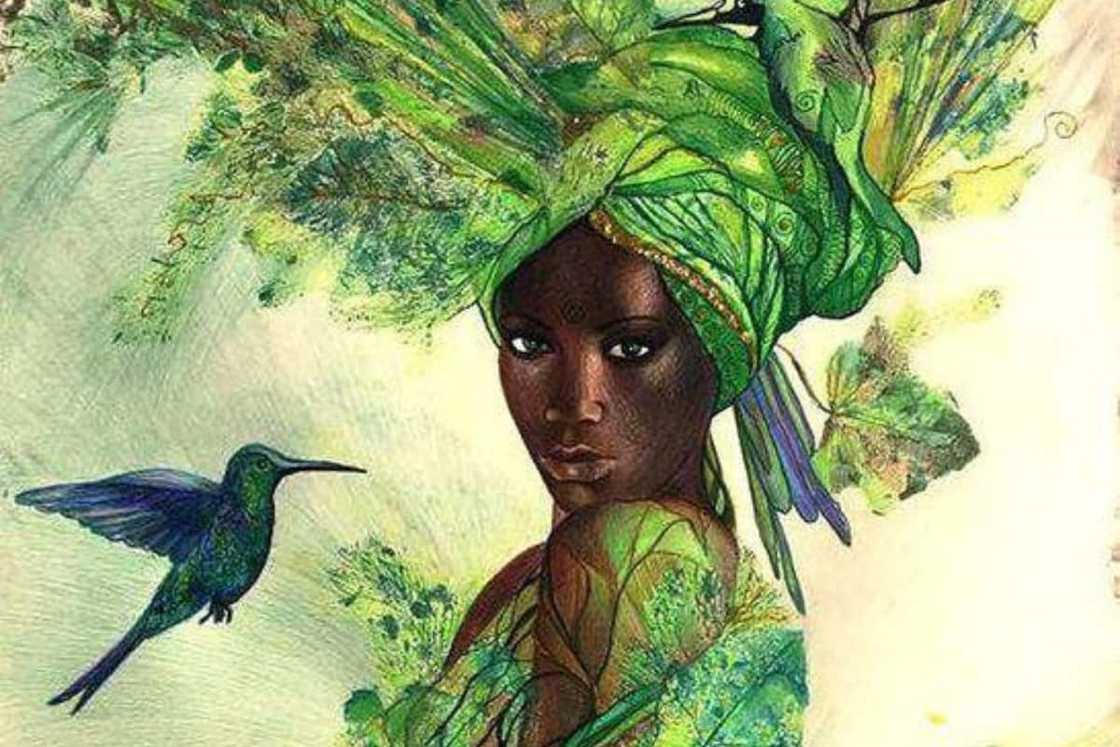
Source: UGC
Aja is a deity associated with the forest, the earth, and the hunt among the Yoruba community. She is often depicted as a powerful, fierce warrior woman, wearing animal skins and carrying weapons. Aja is also considered the mother of the Orisha (deities) Ogun and Oya, associated with iron and wind, respectively.
14. Nana Aberewa
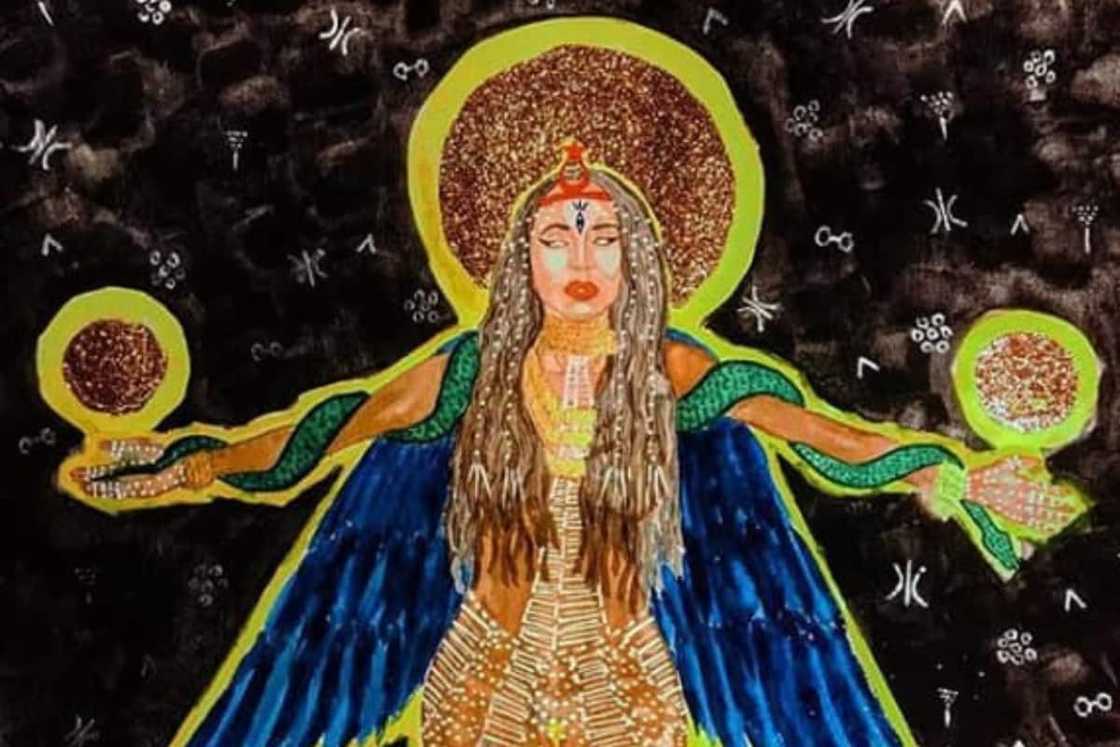
Source: UGC
Nana Aberewa is a goddess from the Ashanti people of Ghana who is revered as the mother of the nation. She is believed to have been a historical queen who lived in the 17th century and played an important role in the history of the Ashanti people. Nana Aberewa is sometimes referred to as the "Mother of Wars" because of her leadership and bravery in battle. She is associated with fertility, protection, and prosperity.
15. Mamlambo
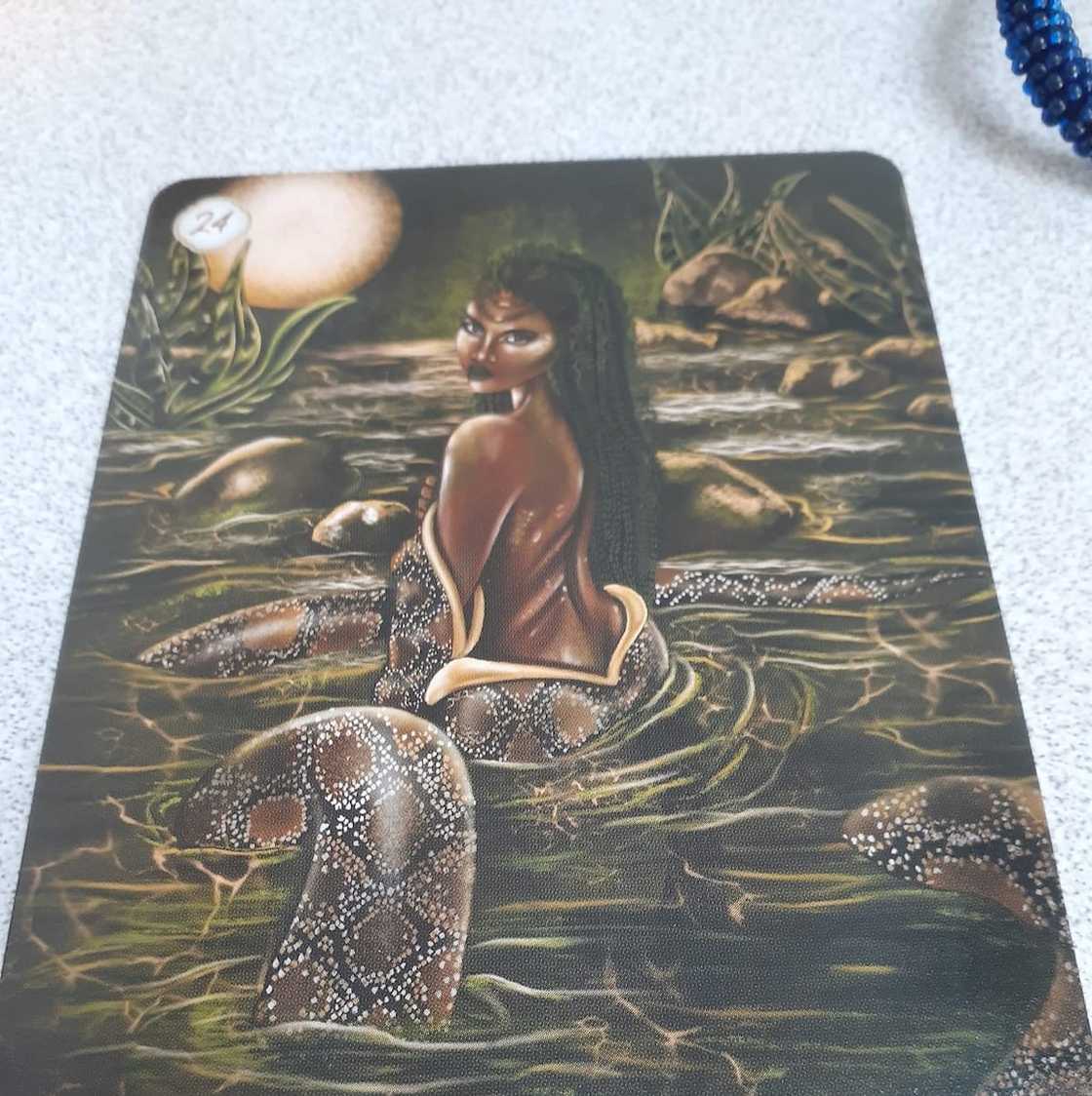
Source: Facebook
Mamlambo is a goddess from Zulu mythology who is often associated with water and serpents. She is believed to inhabit rivers, streams, and other bodies of water and is often depicted as a large serpent or dragon-like creature.
Mamlambo is a powerful and dangerous deity who can cause floods, droughts, and other natural disasters. She is sometimes seen as a protector of children and women but is also known to be vengeful and prone to causing chaos and destruction.
Summary list of the famous African goddesses
- Oshun
- Oya
- Ala
- Yemaya
- Modjadji
- Nana Buluku
- Abena
- Odudua
- Inkosazana
- Mbaba Mwana Waresa
- Kibuka
- Adroa
- Aja
- Nana Aberewa
- Mamlambo
Who is the most powerful African goddess?
Oshun is regarded as one of the most powerful goddesses. She is associated with water, purity, fertility, love, sensuality, and human characteristics such as vanity, jealousy, and spite.
Who is the African moon goddess?
Mawu is a goddess associated with the moon. She is sometimes paired with a male deity, Lisa, who represents the sun and the day, and together they are considered the creators of the world and all living things.
What is the African name for a queen?
The African name for queen varies depending on the specific language and culture. For example, in the Akan culture of Ghana, the word for a queen is "Ohemaa," while in the Yoruba culture is "Olori." In the Zulu culture of South Africa, the word for a queen is "Indlovukazi," which means "she-elephant.".
African cultures and religions have given rise to a vast and diverse pantheon of gods and goddesses. From the fierce warrior queens of the Ashanti to the serpent-like African deities of Zulu mythology, these powerful African goddesses and gods embody a wide range of qualities and virtues, from fertility and protection to wisdom and transformation.
READ ALSO: Top trees in South Africa: A-Z exhaustive list with images
Briefly.co.za recently published a list of the best trees in South Africa. The country is home to a diverse array of plant life, with thousands of tree species flourishing in its various regions and ecosystems. Each tree, from towering giants to delicate shrubs, has its own distinct characteristics and qualities, providing vital habitat for wildlife, purifying the air we breathe, and adding to the beauty of the natural world around us.
Whether you are a nature lover, a botanist, or simply curious about South Africa's rich diversity of flora, this guide will take you on a journey through some of the country's most iconic and fascinating trees, highlighting their unique features, ecological roles, and cultural significance.
Source: Briefly News

Jedidah Tabalia Jedi is a journalist with over 5 years working experience in the media industry. She has a BSc. in Human Resource Management from Moi University (graduated in 2014) and a working in progress MBA in Strategic Management. Having joined Genesis in 2017, Jedi is a passionate Facts and Life Hacks, Fitness, and Health content creator who sees beauty in everything. She loves traveling and checking out new restaurants. Her email address is jedidahtabalia@gmail.com

Adrianna Simwa (Lifestyle writer) Adrianna Simwa is a content writer at Briefly.co.za, where she has worked since mid-2022. She has written for many periodicals on a variety of subjects, including news, celebrities, and lifestyle, for more than three years. She has worked for The Hoth, The Standard Group and Triple P Media. Adrianna graduated from Nairobi University with a Bachelor of Fine Arts (BFA) in 2020. In 2023, Adrianna finished the AFP course on Digital Investigation Techniques. You can reach her through her email: adriannasimwa@gmail.com

